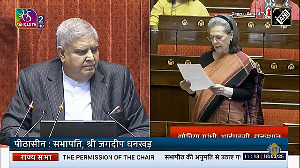Paul Krugman is perhaps most widely known as a columnist in The New York Times. On the day that he was awarded the Nobel prize in economics for 2008, his column sharply criticised the Bush administration for its handling of the financial crisis, while praising the UK government for its decisive moves in supporting the British banking system.
Of course, if writing newspaper columns merited Nobel prizes, Indians would have many more of them. But Prof Krugman is also amongst the most eminent academic economists in the US. He was awarded the John Bates Clark Medal in 1991, the 23rd winner of an award that is given every alternate year to an American economist under the age of 40. Twelve of the first 23 have gone on to win Nobel prizes, making it look like a virtually necessary condition for an American to become a Nobel laureate. The prize announcement cites his research on the parallel domains of international trade and economic geography, which he was instrumental in bringing together to explain patterns of both trade and location of economic activities, which traditional trade theory had failed to do.
Prof Krugman's theoretical contributions to trade, in the late 1970s and early 1980s, explained why there were such high volumes of trade between countries with essentially similar endowments of labour and capital. The familiar theories of trade, based on comparative advantage, could not explain the huge volumes of trade taking place between the US and Europe, nor the fact that a significant proportion of this was within the same industry. Americans were buying European cars and vice-versa.
The new theory, based on notions of economies of scale and product differentiation, suggested that countries would tend to specialise in particular product segments to gain cost efficiencies and trade would then take place because consumers in any one country liked variety. This approach explained a significantly higher proportion of global trade than its predecessor, which is what a good theory is supposed to do.
His contribution to economic geography came a decade later, when he used essentially the same arguments to demonstrate that economic activity would organise itself around relatively specialised agglomerations to take advantage of scale. Although his fellow columnist, Thomas Friedman, popularised the term 'Bangalored,' Prof Krugman's explanation of the economic foundations of cities is illustrated by the growth of Bengaluru.
Although Prof Krugman is not typically associated with development economics or policy, his approach provides a foundation for thinking about urban and regional planning. Even as we despair about the state of our cities, his insights help to recognise the importance of ensuring that every city develops in a way that provides maximum impetus to the activities that it specialises in. It is only the availability of several complementary resources and services that will achieve this.
The experiment with special economic zones, mixed as the record is, reflects an attempt to do just this. Providing the entire range of infrastructure and services required by a set of closely related activities with high quality and reliability is the way to achieve high levels of competitiveness. The more India allows its cities to decay, the more dependent the country will become on substitutes like the zones to sustain economic growth. That is certainly worth a column or two.






 © 2025
© 2025